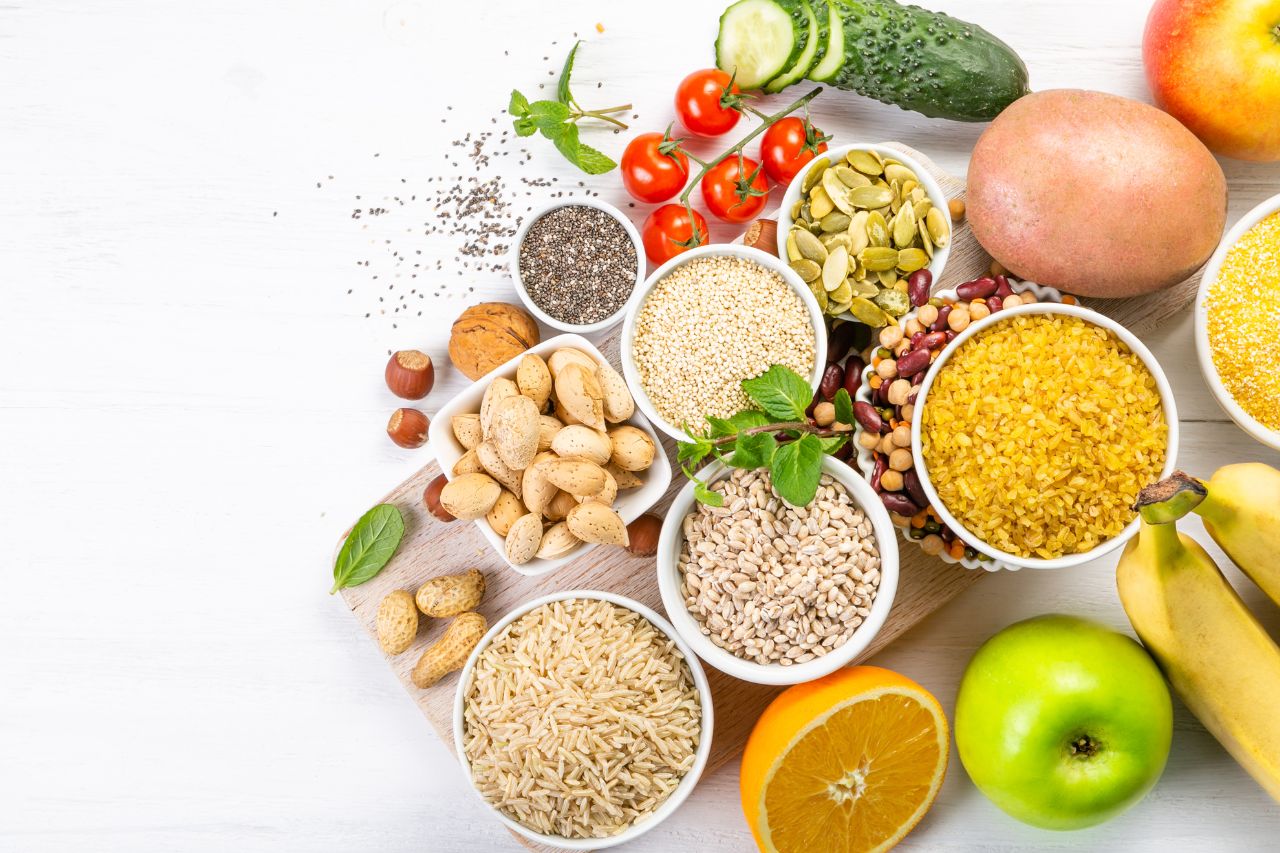Carbs. For years, they’ve been villainized by fad diets and fitness trends, labeled as the culprit for weight gain, bloating, and even fatigue. But when it comes to following a plant-based diet, carbohydrates play a vital role in providing energy and nutrients. The key is understanding the difference between healthy carbs and refined carbs, and how they fit into a balanced, plant-powered lifestyle. Let’s dive in and debunk some common carb myths while shedding light on the real story behind this essential macronutrient.
Myth 1: All Carbs Are Bad
One of the biggest misconceptions is that all carbohydrates are harmful. But carbs are your body’s primary source of energy, especially for your brain and muscles. The issue isn’t carbs themselves—it’s the type of carbs you’re consuming.
- Whole Carbs: These are found in whole foods like fruits, vegetables, legumes, and whole grains. They are unprocessed, rich in fiber, vitamins, and minerals, and provide sustained energy. Examples include quinoa, oats, sweet potatoes, and apples.
- Refined Carbs: These are the types of carbs you want to avoid. Refined carbs, such as white bread, sugary snacks, and sodas, are stripped of their nutrients during processing, leaving behind empty calories that spike your blood sugar and lead to energy crashes.
Bottom Line: Whole carbs are beneficial and should be a core part of your plant-based diet. Refined carbs, however, should be limited.
Myth 2: Carbs Make You Gain Weight
This myth has fueled the rise of low-carb diets, leading many to believe that cutting out carbs is the secret to weight loss. But the reality is that carbs themselves are not inherently fattening. It’s more about the quality and portion size of the carbs you’re eating.
- Whole Grains and Legumes: Whole grains like quinoa, brown rice, and oats, along with legumes such as lentils and chickpeas, are complex carbs packed with fiber. Fiber slows down digestion, keeps you fuller for longer, and helps stabilize your blood sugar. These foods are not only filling but also nutrient-dense, making them excellent for weight management.
- Portion Control: Like any macronutrient, eating excessive amounts of carbs can contribute to weight gain. However, if you focus on portion sizes and prioritize complex carbs over refined ones, they can actually support your weight loss or maintenance goals.
Bottom Line: Whole, fiber-rich carbs don’t cause weight gain—overeating and consuming refined carbs do. A balanced intake of complex carbs can help with weight management by keeping you full and energized.
Myth 3: You Don’t Need Carbs to Thrive on a Plant-Based Diet
Some people believe you can eliminate carbs entirely and still thrive on a plant-based diet. This is misleading and, for most people, not sustainable. Carbohydrates are a vital energy source, especially for those eating a plant-based diet.
- Energy for Workouts: Carbs fuel your workouts and support recovery by replenishing glycogen stores in your muscles. Cutting out carbs can leave you feeling sluggish, making it harder to stay active.
- Brain Function: Your brain relies on glucose, a form of carbohydrate, to function optimally. Too few carbs can lead to brain fog, irritability, and poor concentration.
Bottom Line: Carbs are essential for energy, mental clarity, and overall vitality. A plant-based diet without carbs would leave you low on fuel, making it harder to function at your best.
The Benefits of Whole Carbs on a Plant-Based Diet
Now that we’ve debunked some myths, let’s talk about the benefits of including whole, unprocessed carbs in your plant-based diet.
- Rich in Fiber: Whole carbs like legumes, fruits, and vegetables are packed with fiber, which aids digestion, promotes gut health, and helps prevent constipation. Fiber also supports heart health by lowering cholesterol levels.
- Sustained Energy: Whole carbs provide slow-digesting energy, keeping you feeling fuller for longer and preventing energy crashes throughout the day.
- Nutrient Density: Complex carbs are nutrient powerhouses. Sweet potatoes, for example, are loaded with beta-carotene, while oats provide magnesium, iron, and zinc.
- Improved Mood: Carbs stimulate the production of serotonin, the “feel-good” hormone, which can help stabilize mood and reduce feelings of depression and anxiety.
How to Incorporate Healthy Carbs into Your Plant-Based Diet
To make sure you’re getting the right kinds of carbs, it’s important to choose wisely. Here are a few simple ways to incorporate more whole carbs into your meals:
- Swap Refined for Whole Grains: Replace white rice with brown rice, quinoa, or farro. Swap white bread for 100% whole-grain bread or sprouted grain bread.
- Load Up on Vegetables: Fill your plate with starchy vegetables like sweet potatoes, carrots, and butternut squash, along with non-starchy vegetables like spinach, bell peppers, and zucchini.
- Snack Smart: Instead of reaching for chips or sugary snacks, opt for a piece of fruit, some whole-grain crackers with hummus, or a handful of nuts mixed with dried fruit.
- Add Legumes to Your Meals: Legumes like lentils, black beans, and chickpeas are nutrient-dense carbs that also pack a protein punch. Add them to salads, soups, or grain bowls for a satisfying meal.
Final Thoughts: Don’t Fear Carbs—Embrace the Right Ones
Carbohydrates are not the enemy. In fact, they’re essential for energy, digestion, brain function, and overall health. On a plant-based diet, focusing on whole, unprocessed carbs will not only fuel your body but also enhance your health and well-being.
So, next time you hear someone bashing carbs, remember: not all carbs are created equal. By choosing complex, fiber-rich carbs like whole grains, legumes, fruits, and vegetables, you’re setting yourself up for a healthy, sustainable, plant-powered lifestyle. Embrace them, and your body will thank you!





